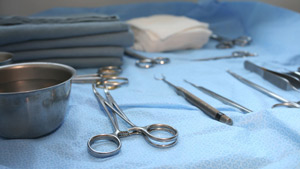The reform of 24-hour services creates regional units and reinforces collaboration

The 24-hour system of health and social services will be reformed. Larger units will be created for the provision of specialised medical care. Some examinations, procedures and treatments will be centralised at the national and regional levels. The aim of the reform is to secure equal access to services, sufficient skills in the units providing care as well as client and patient safety, and to curb cost increases. The aim is also to improve access to urgent care.
The reform will be implemented as part of the health, social services and regional government reform. The intention is to implement the reform gradually in 2017–2019.
24-hour services will continue in central hospitals, and the broadest selection of 24-hour services will be available in 12 hospitals
All units providing 24-hour services must have the necessary resources and skills.
The broadest selection of 24-hour specialised services will be available in 12 units providing broad-based 24-hour services. Five of these units will be university hospitals that even provide highly specialised medical care. Each of the 12 units shall provide services around the clock in at least ten specialist fields and in social services. This ensures that the units have multidisciplinary skills as well as preparedness for special situations.
The hospital districts of Helsinki and Uusimaa, Southwest Finland, Satakunta, Pirkanmaa, Päijät-Häme, South Karelia, North Karelia, North Savo, Central Finland, South Ostrobothnia, North Ostrobothnia and Lapland must each organise a unit offering broad-based 24-hour services in connection with their central hospitals.
Other central hospitals will continue their 24-hour services with a narrower selection of primary healthcare and specialised medical care, also offering 24-hour social services. They will provide 24-hour medical services in the specialist fields in most demand. Each of the five catchment areas must agree on a detailed division of duties between their central hospitals, taking into account availability of services, distances between 24-hour service units as well as implementation of the population’s linguistic rights. In order to ensure the linguistic rights of the population, the Hospital District of South Ostrobothnia shall make their 24-hour services available in Finnish and Swedish so that patients have access to the services in the language of their choice.
Emergency reception services, organised as local services in health centres, will be reinforced. Emergency reception services will be available as local services in the local health centre also in the evenings and at weekends.
Collaboration between healthcare and social welfare services will be reinforced
24-hour social services shall be available in both the units providing broad-based 24-hour medical services and the central hospitals with a narrower selection of 24-hour services. The obligation to organise psychosocial support will also be reinforced. Mental health and substance abuse services around the clock will be organised as part of 24-hour services in both healthcare and social welfare.
In connection with both non-urgent and urgent medical treatment it shall be assessed whether the client is in obvious need of social services. The aim is that contacting social services and referring clients to them will become a regular practice in healthcare. The legislation will also ease the workload in 24-hour services by ensuring that non-urgent cases are as much as possible treated during office hours.
Particularly intensive social services can be centralised nationally or regionally as part of either healthcare services or other services. This will ensure client safety and the quality of services. The municipalities will still have a variety of alternative ways to develop 24-hour social services based on local needs, good practices and collaboration between municipalities.
The content of emergency medical services and the duties of the emergency medical service units in the catchment areas will be clarified. Collaboration between the emergency medical services, emergency medical service unit and 24-hour social services in the region will be reinforced, and regional guidelines will be harmonised.
The effects of the reform will be closely monitored
The amendments to the Health Care Act and Social Welfare Act enter into force on 1 January 2017. The distribution of duties between the hospitals offering 24-hour services, putting together surgical activities and the joint 24-hour services of health and social services will nevertheless happen no later than 1 January 2018.
The special permits concerning childbirth services and 24-hour services in primary healthcare, granted before the acts enter into force, will be valid until the expiry date mentioned in the permit.
Parliament requires that the Government monitors the new distribution of duties in specialised medical care and the implementation of linguistic rights. The Government shall immediately take corrective measures if functional problems occur in some regions, patient safety deteriorates or cost-efficiency objectives are not met. In addition, the Government shall monitor that patients receive services in the language of their choice, either in Finnish or Swedish, when using the 24-hour services of the Hospital District of South Ostrobothnia. If this is not the case, the Government shall take measures when necessary.
The President of the Republic ratified the acts on 29 December 2016.
Inquiries
Anne Koskela, Ministerial Counsellor for Legal Affairs, tel. +358 2951 63384
Liisa-Maria Voipio-Pulkki, Director, tel. +358 2951 63382 (structural reform)
Timo Keistinen, Ministerial Counsellor for Health/Medical Affairs, tel. +358 2951 63385 (specialised medical care)
Virva Juurikkala, Senior Specialist, tel. +358 2951 63204 (24-hour social services)
Lasse Ilkka, Senior Specialist, tel. +358 2951 63995 (emergency medical services)
Anne Nordblad, Ministerial Counsellor for Health/Medical Affairs, +358 2951 63387 (oral health services)
- Päivystyksen ja erikoissairaanhoidon rakenneuudistus (alueuudistus.fi)
